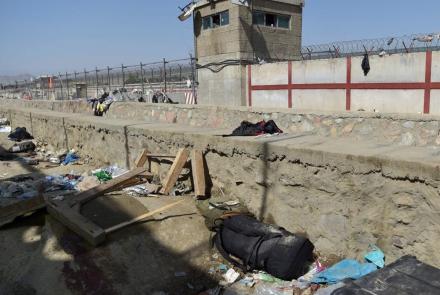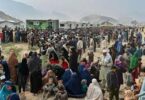According to the US media, the Afghan Taliban are ready to cooperate with the United States in combating the Islamic State (IS) as the regime perceives jihadists as a threat to its own power base. As said, a senior US Defense official told the Washington Post that the dueling armed groups are openly warring, the IS-K is attacking Afghan Taliban, while government forces are actively retaliating by targeting the group’s hideouts across Afghanistan. According to the report, the Afghan Taliban has served as a check on ISIS in the post-US scenario after the group took over Afghanistan in August 2021. The Western analysts had repeatedly cautioned the world that the IS was once again using Afghanistan as a staging ground for plots against America, Europe, and other destinations in the world.
A lot has been penned and deliberated regarding the prevailing situation and the issues that confronted the Afghan Taliban over the past one and a half years of the Taliban rule in Afghanistan. After gaining power, the Taliban regime faced multiple issues ranging from a war-torn economy to global economic sanctions agaisnt the group, a persistent humanitarian crisis and natural disasters including floods, diseases, and earthquakes also added up to their problems amid a severe scarcity of resources, seasoned leadership, and skilled manpower. Meanwhile, a renewed armed insurgency in the Northern region and the risks of violent terrorism from multiple armed groups including the IS-K pose serious challenges to the Islamic Emarite in Afghanistan.
Realistically, the Taliban, an armed insurgent group that seized power after a two-decades-long war with the US and its allies, neither has a fully trained and suitably equipped Army nor they have a regular government infrastructure, policing, and Intelligence set up that helps them combat an invisible and violent enemy hiding in densely populated cities and far-flung hilly areas across the country. Although, Taliban forces had carried out several successful operations against Daesh yet the volume of the threat is rapidly growing and a lack of training, technology, and shortage of manpower and resources are the major problems that seriously undermined the Taliban’s campaign against the IS-Khorasan.
Apparently, the Islamic Emirate of Afghanistan needs massive technical and material assistance along with an all-time intelligence sharing to effectively cope with the aggravating risk of the IS-K that not only poses a security risk but also competes with the interim regime on ideological and political grounds. On the other hand, the United States and the global community are worried about the current security situation in Afghanistan, as multiple terror groups including the IS-K, and the TTP and its splinter groups have amassed in the country and pose serious security challenges to the United States, Europe, and other neighboring nations. At the same time, Pentagon and US State Department are in search of an ally that collaborates with the US to tackle this risk rapidly taking root in South Asia. Presently, the Afghan authorities had rejected media reports and ruled out any possibility of Kabul’s partnership with the United States in the terrorism domain. As, the interim Afghan government is currently embattled with multiple security, economic, and foreign policy issues that could not be unlocked without support from the United States and the West.
Historically, the convergence of interests and similarity of views often brings staunch rivals to the negotiating table while differences of opinion and rigidness estranged the decadeslong friends in a few months. The Arab-Israel ties, Saudi-Iran rapprochement, and the Taliban’s past relations with the United States clearly define this rule. Apparently, the US-Taliban alliance against terrorism is a shared responsibility and common cause of Kabul and Washington. It is a future reality, however, the nature, extent, and volume of their joint work would be decided by both countries as and when the situation arises. After all, the future events would define the fate of the Afghan nation which has already paid a heavy price for the ego of its leaders.







